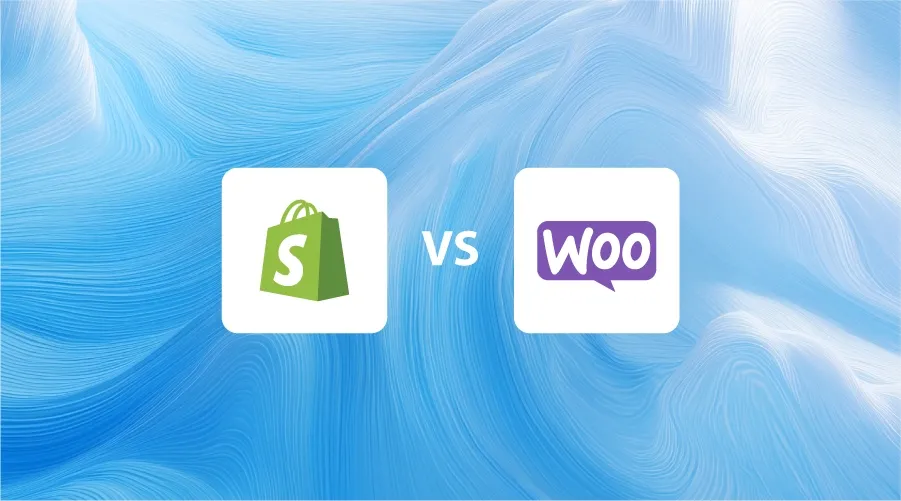Shopify vs WooCommerce (WordPress): An updated comprehensive comparison

Oct 15, 2025
6 min
Key takeaways:
- Shopify is a fully hosted platform ideal for beginners and businesses seeking a quick, low-maintenance setup with predictable monthly costs and built-in security.
- WooCommerce is a self-hosted WordPress plugin offering complete control, unlimited customization, and better scalability for content-heavy or highly tailored eCommerce needs.
- Shopify prioritizes ease of use, while WooCommerce prioritizes flexibility and ownership — your choice depends on your technical comfort and business goals.
- WooCommerce supports all major local Malaysian payment gateways, including FPX, DuitNow, and e-wallets — directly and with full control.
- Choose Shopify if you value speed and simplicity. Choose WooCommerce if you want flexibility, customization, and control over your infrastructure.
- Billplz integrates seamlessly with both Shopify and WooCommerce, making it easy for Malaysian sellers to offer secure, local payment options no matter which platform they use.
Introduction
Shopify and WooCommerce are two of the most popular eCommerce platforms globally and among Malaysian businesses. Both have powered millions of online stores, but they represent fundamentally different approaches to building an online business.
Shopify is a fully hosted, subscription-based platform (Software as a Service, or SaaS). It’s an all-in-one solution that takes care of everything from hosting to security.
WooCommerce, on the other hand, is a free, open-source plugin that transforms a self-hosted WordPress website into a comprehensive online store.
In this guide, we’ll provide a side-by-side comparison of Shopify and WooCommerce to help Malaysian sellers decide which is the better fit for their needs.
Overview of each platform
Here is a quick look at the two dominant e-commerce solutions, Shopify and WooCommerce.
What is Shopify?
Shopify is a fully hosted, subscription-based e-commerce platform. It provides a complete, turn-key solution, meaning the company manages all the technical aspects, including server maintenance, hosting, security (SSL), and software updates.
The platform is renowned for its ease of use and speed to launch. Merchants, even those with no technical background, can set up a professional online store in a matter of hours.
While the core functionality is robust, the platform also offers a vast App Store ecosystem to scale features like inventory management, marketing, and advanced analytics. It’s also mobile-optimized and supports a variety of sales channels, including social media.
Also read: Shopify payment gateway in Malaysia with local payment methods
What is WooCommerce (WordPress)?
WooCommerce is a free WordPress plugin that turns any WordPress site into a fully functional online store. It's ideal for users who are already familiar with WordPress or who want more control over their site’s functionality and design.
Although the WooCommerce plugin itself is free, running a WooCommerce store requires separate web hosting, domain registration, SSL, and often premium themes or plugins.
However, it offers unparalleled flexibility and is popular among developers, content-heavy brands, and custom-built websites.
Shopify vs WooCommerce – Key comparison
Both Shopify and WooCommerce power thousands of online stores in Malaysia, but their approach to eCommerce are fundamentally different. Here’s how they compare:
| Feature | Shopify | WooCommerce (WordPress) |
| Type | Fully hosted SaaS | Open-source plugin for WordPress |
| Ease of Setup | Quick setup, user-friendly, no coding | Requires hosting + WordPress knowledge, more steps |
| Cost | Monthly subscription + app/transaction fees | Free plugin, mandatory costs for hosting/domain/theme/plugins |
| Design & Themes | Shopify Theme Store (premium focus) | Vast WordPress themes + WooCommerce themes (free/paid) |
| Payment Options | Shopify Payments (not in MY) + 3rd-party (like Billplz, PayPal, etc) | Wide gateway support (Billplz, Stripe, PayPal, etc.) |
| Scalability | High, managed hosting & infrastructure | High, but performance depends on hosting quality & optimization |
| Security | Built-in SSL, PCI compliant, managed by Shopify | Requires the user to manage hosting security & updates |
| Customization | Limited without coding, depends on the theme structure | Extremely flexible, full control over code and themes |
| Support | 24/7 official Shopify support | Community-driven + hosting provider support |
Pricing & costs
Shopify operates on a tiered monthly subscription model, plus additional transaction fees if you don't use their proprietary payment gateway, or if you are in a region where it is not available (like Malaysia). Merchants must also budget for paid applications to add specific functionality. The pricing is predictable and includes hosting.
WooCommerce is free, but you’ll need to pay for a domain, hosting, SSL, and premium plugins or themes. While initial costs may seem lower, scaling can introduce complexity.
Ease of use
Shopify is fundamentally designed for the non-technical user. Its setup process is a simple step-by-step wizard, and its dashboard is intuitive for daily store management. It offers a fast route to market.
WooCommerce requires more technical familiarity, primarily with setting up and managing a WordPress site and web hosting. The initial setup time is longer due to the multiple steps (installing WordPress, installing WooCommerce, and setting up hosting).
However, for anyone already comfortable with the WordPress interface, the daily management is flexible.
Design & customization
Shopify provides access to the Shopify Theme Store, offering high-quality, conversion-optimized, yet somewhat restrictive, pre-set templates. Customization is handled through a drag-and-drop editor, offering limited backend control without advanced coding.
WooCommerce offers complete, unlimited customization. You can choose from thousands of WordPress and WooCommerce themes and tweak every element via code or page builders like Elementor.
Payment gateways
In Malaysia, Shopify relies entirely on third-party payment providers like Billplz, Stripe, or PayPal for local payment processing. As the proprietary Shopify Payments is currently unavailable in Malaysia, merchants must rely on third-party payment gateways. This can incur additional transaction fees in some cases.
WooCommerce benefits from being open-source and has direct support for virtually all major Malaysian payment gateways. This allows merchants to natively accept methods like FPX, DuitNow, and all major e-wallets. This flexibility enables businesses to choose the provider with the best rates and most comprehensive feature set.
Billplz integrates seamlessly with both Shopify and WooCommerce. It offers Malaysian businesses a unified, hassle-free way to accept essential local payment methods such as FPX, DuitNow, e-wallets, and BNPL.
Also read: FPX payment for business: How it works, guides & our solutions
Marketing & SEO tools
Shopify has robust built-in SEO features like automatic sitemaps and customizable meta tags, and a large app store of marketing tools. However, its blog and content management capabilities are relatively basic.
WooCommerce runs on WordPress — the world’s most SEO-friendly CMS. Merchants can leverage powerful plugins like Yoast SEO or RankMath, making it the superior choice for businesses planning a content-heavy strategy to drive organic traffic.
Scalability & performance
Shopify handles scalability automatically. Its managed infrastructure is designed to handle massive traffic spikes, like during major sales events, without the merchant having to worry about upgrading servers or configuration.
WooCommerce is highly scalable, but its performance is entirely dependent on the quality of the web hosting and how well the store is configured and optimized. A high-traffic WooCommerce store requires premium managed hosting, caching, and regular maintenance.
Seller & buyer experience
Shopify offers a famously fast and streamlined checkout process. The user experience (UX) is highly consistent, mobile-optimized, and designed for high conversion across all stores.
WooCommerce offers more flexibility, but the seller and buyer experience will depend heavily on the chosen theme, plugins, and setup quality.
A well-built WooCommerce store can match or exceed Shopify’s UX, but a poorly configured one can result in slower loading times and a complicated checkout process.
Which is better for your business: Shopify or WooCommerce?
Choosing between the two ultimately depends on your resources, goals, and technical comfort level.

Choose Shopify if:
- You want a quick launch with minimal technical overhead.
- You prioritize hosted security and guaranteed performance.
- You have minimal to no technical expertise and don't want to manage hosting or updates.
- Your primary goal is transactional e-commerce without a complex content strategy.
Choose WooCommerce if:
- You want full flexibility and control over every aspect of your store.
- You are comfortable managing a WordPress site and web hosting, or have a technical team.
- You plan to implement a deep, content-heavy marketing strategy.
- You are looking for potentially lower long-term costs and prefer to own your entire platform.
How do you choose the right platform for your products?
The decision factors should be weighted according to your business needs:
- Budget: Is predictable monthly spending better than varied, long-term costs?
- Technical expertise: Do you have the skills or budget for a developer, or do you need a no-code solution?
- Product range & inventory: Does your business require specific, niche inventory management features, or is the standard e-commerce flow sufficient?
- Content strategy: Is your store’s success tied to blogging and content marketing? If so, WordPress/WooCommerce is the stronger choice.
Regardless of which platform you choose—Shopify or WooCommerce—securing a reliable, local payment integration is essential for high conversion in Malaysia.
Payment solutions like Billplz seamlessly bridge the gap, enabling your customers to pay using preferred local methods like FPX, DuitNow, BNPL, and popular e-wallets, ensuring a smooth and trusted transaction experience on both platforms.
With Billplz, you get a secure platform that simplifies payment reconciliation and improves the overall checkout experience.
FAQ
Is Shopify or WooCommerce better for small businesses in Malaysia?
Shopify is generally better for the smallest businesses (solopreneurs, micro-businesses) due to its simplicity, quick setup, and included hosting.
WooCommerce becomes viable and often better for small businesses that have a budget for quality hosting and want more control and flexibility to grow into a complex store.
Which is cheaper: Shopify or WooCommerce?
WooCommerce can be cheaper initially, but long-term costs vary depending on hosting and plugin usage. Shopify has predictable monthly pricing but higher fees in Malaysia due to limited native payment options.
Does Shopify support FPX payments in Malaysia?
Yes, Shopify supports FPX payments in Malaysia indirectly through third-party payment gateways (like Billplz) that integrate with the platform.
Can WooCommerce integrate with Billplz?
Yes, WooCommerce integrates seamlessly with Billplz. Billplz provides official plugins that allow merchants to accept payments like FPX, DuitNow, and e-wallets directly within their WooCommerce checkout process.
Which platform is better for SEO: Shopify or WooCommerce?
WooCommerce (with WordPress) is generally considered better for SEO. This is due to the platform's superior content management capabilities and the availability of powerful, specialized SEO plugins like Yoast SEO and RankMath.
Shopify has good built-in SEO, but its content features are more limited.
Conclusion
There’s no one-size-fits-all solution. Shopify and WooCommerce serve different needs. Shopify offers convenience and fast launch capabilities. WooCommerce excels in customization and long-term flexibility.
The ultimate goal, regardless of the platform, is to sell effectively.
Billplz powers both Shopify and WooCommerce with seamless, local payment solutions for Malaysian businesses. Whether you're a beginner or a scaling enterprise, Billplz helps ensure your payment operations are secure, affordable, and fully integrated.
Enable Billplz today and elevate your Shopify or WooCommerce store with trusted Malaysian payment infrastructure. New merchants receive MYR 25.00 in starter credit with code GROWTHPRO (valid until 31 December 2025).